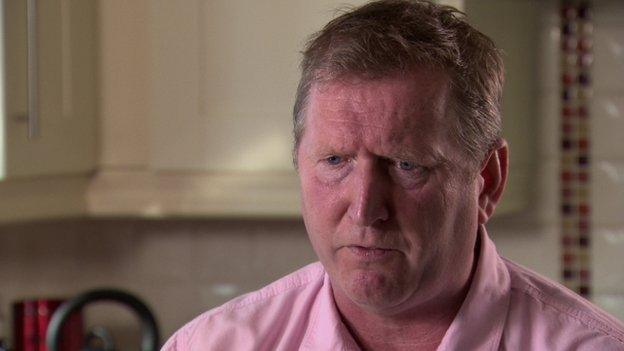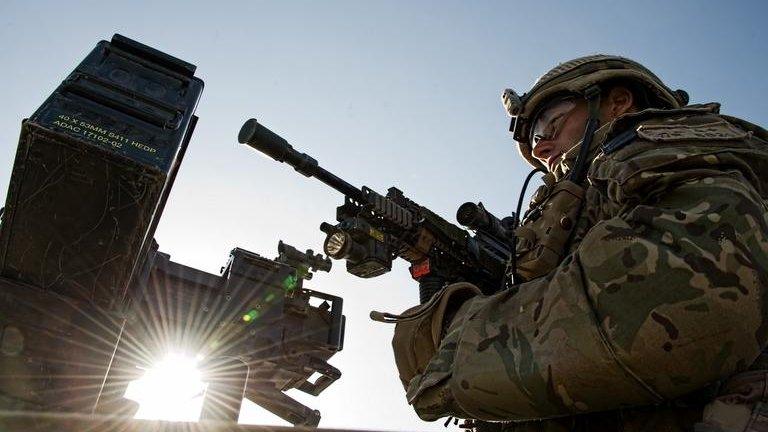Doug Beattie: First ministers 'failing' military veterans
- Published

UUP MLA Doug Beattie said the armed forces covenant must be adopted in Northern Ireland
An Ulster Unionist MLA has accused the first ministers of a total failure to address the needs of military veterans.
Doug Beattie, a retired Army captain, said their response to a question on the Armed Forces Covenant was "staggering" and "utterly inadequate".
The ministers' response said the covenant had not been adopted in Northern Ireland.
However, Mr Beattie said the covenant must be adopted since armed forces issues were not devolved to Stormont.
The covenant was brought into law in Westminster as part of the Armed Forces Act 2011, external. It states that the nation has a "moral obligation" to members of the army, navy, airforce and their families.
It pledges support for military veterans and their families, and also says those with serious physical and mental injuries should be given special consideration, including priority medical treatment, in some cases.
Sinn Féin and the SDLP have previously said they are opposed to what has been described as "preferential treatment" for former soldiers.
'At odds'
However, Mr Beattie said this was not about preferential treatment, but making sure the "armed forces community are not disadvantaged".
Mr Beattie wrote to the ministers to ask whether the executive would appoint a representative to the reference group that oversees the covenant.
The Office of the First Minister and Deputy First Minister (OFMDFM) responded that the covenant "had not been adopted here and there has been no joint agreement to appoint a representative to the Armed Forces Covenant Reference Group".
Mr Beattie, speaking to Good Morning Ulster, said this was "at odds" with what has been said by the UK government.
"It's completely against what Mark Lancaster, the parliamentary undersecretary of state and minister for defence personnel and veterans has said to me, or his predecessor Anna Soubry has said to me or indeed what the prime minister has said on numerous occasions."
He said that if the executive does not want to nominate somebody to sit on the covenant's reference committee, then it should "get out of the way" and let Stormont's opposition nominate instead.
"If you're not engaging with the reference group, then we can't get this (the covenant) in place," he said.
"That's why I'm calling on the executive to nominate somebody to sit on this reference group, to listen, to put across our particular issues, to represent our armed forces community so people know what the need is.
"Right now, they're saying they're not going to, they're saying we don't accept the armed forces covenant even though it's quite clear it's here and we should be accessing it."
- Published26 May 2015

- Published27 May 2015
